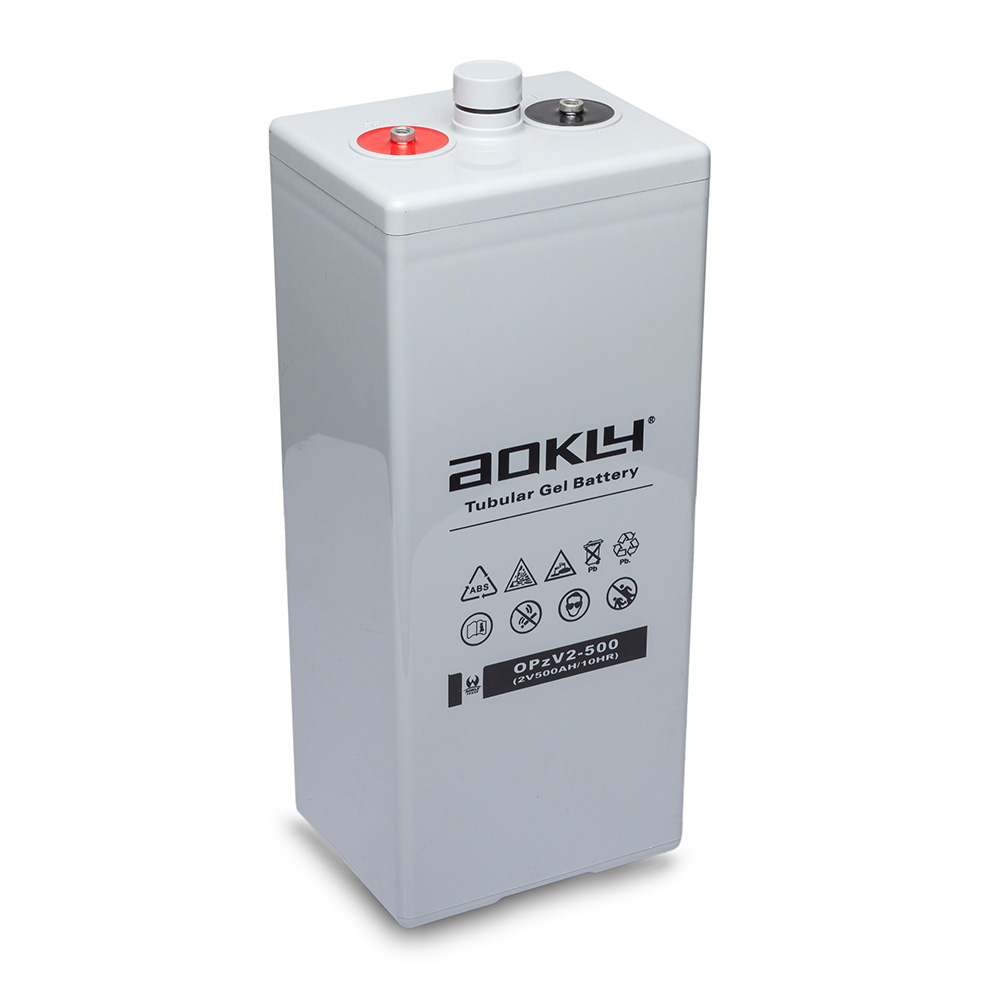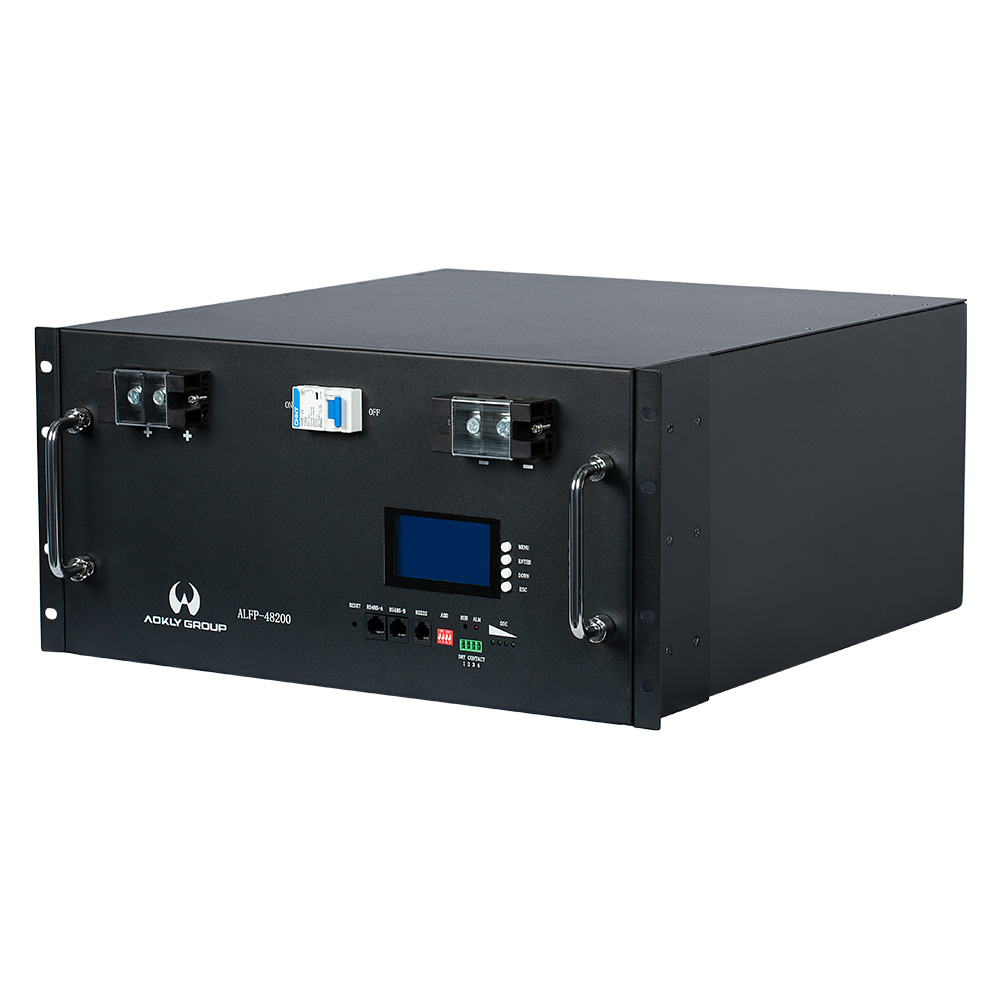When it comes to energy storage, the choice between OPzV and lithium batteries can have a significant impact on performance, longevity, and cost. Both of these battery types offer unique advantages, but they also come with trade-offs that make them more suitable for certain applications than others. Understanding the key differences between OPzV batteries and lithium batteries is crucial for businesses and energy solution providers looking to maximize value and efficiency in their energy storage systems.
In this article, we will compare OPzV batteries and lithium batteries across several critical factors, including performance, lifespan, maintenance requirements, and overall cost-effectiveness. By the end, you'll have a clearer understanding of which battery type is the best fit for your energy storage needs.
What is an OPzV Battery?
OPzV batteries are valve-regulated lead-acid (VRLA) batteries that feature tubular plates and gel-based electrolytes. Known for their reliability and durability, these batteries are often used in off-grid systems, solar power storage, and telecommunications. OPzV batteries are designed for deep-cycle performance, meaning they can be discharged and recharged multiple times without significant degradation.

OPzV Battery
- Long lifespan: OPzV batteries can last up to 15 years in ideal conditions, making them an attractive option for long-term energy storage.
- Low maintenance: Since they are sealed and use a gel electrolyte, OPzV batteries require minimal maintenance compared to traditional flooded lead-acid batteries.
- High reliability: OPzV batteries are resistant to extreme temperatures and have a low self-discharge rate, making them ideal for harsh environments.
What is a Lithium Battery?
Lithium batteries, specifically lithium-ion (Li-ion) or lithium iron phosphate (LiFePO4) batteries, are a newer energy storage technology widely used in consumer electronics, electric vehicles, and renewable energy systems. These batteries are known for their high energy density, fast charging capabilities, and long cycle life.

Lithium-ion Battery
- High energy density: Lithium batteries can store more energy in a smaller space compared to lead-acid batteries, making them ideal for applications where space is limited.
- Long cycle life: Lithium batteries can last for thousands of charge and discharge cycles, making them highly durable.
- Fast charging: Lithium batteries charge faster than most lead-acid alternatives, which can be a significant advantage in systems that require quick turnaround times.
- Lightweight design: Lithium batteries are much lighter than OPzV batteries, making them easier to install and move, especially in mobile or space-constrained applications.
OPzV Battery vs Lithium Battery: A Comparison
To help you make an informed decision, let’s break down the main factors that differentiate OPzV batteries from lithium batteries.
1. Performance and Efficiency
When it comes to energy storage performance, lithium batteries offer higher energy efficiency than OPzV batteries. Lithium batteries have an efficiency rate of around 90-95%, meaning that more of the energy stored in the battery can be used. OPzV batteries, on the other hand, have an efficiency rate of about 80-85%, which makes them slightly less efficient.
In applications that require frequent charging and discharging, such as solar energy storage, lithium batteries tend to be the more efficient choice. However, for systems where energy storage demands are more stable, OPzV batteries can still provide reliable performance.
2. Lifespan and Cycle Life
Both battery types offer impressive longevity, but they differ in terms of cycle life. Lithium batteries generally last longer, offering up to 5,000 charge cycles or more, depending on the model. In contrast, OPzV batteries provide around 1,500 to 3,000 charge cycles, which is lower but still suitable for many industrial and renewable energy applications.
OPzV batteries have the advantage of maintaining their performance over many years, often lasting up to 15 years or more with proper maintenance. This makes them an excellent choice for long-term, stationary energy storage solutions. Lithium batteries also last a long time but tend to degrade faster in high-temperature environments, making them better suited for controlled indoor applications or systems with proper temperature regulation.

Solar Energy Storage System Solutions
3. Cost and Affordability
One of the most significant factors when comparing OPzV batteries vs lithium batteries is the cost. OPzV batteries are typically less expensive upfront, making them a more affordable option for large-scale energy storage projects, especially in off-grid or backup power applications.
However, while lithium batteries have a higher initial cost, they may offer better long-term value due to their higher efficiency, longer cycle life, and reduced need for maintenance. Over the life of the battery, lithium batteries can provide a lower total cost of ownership, especially in applications where frequent cycling is necessary.
4. Maintenance and Durability
OPzV batteries require minimal maintenance compared to traditional lead-acid batteries, thanks to their sealed design and gel electrolyte. They are also highly resistant to extreme temperatures and can perform well in outdoor or rugged environments.
Lithium batteries, on the other hand, are virtually maintenance-free, which is a significant advantage in systems where maintenance downtime is not an option. Their lighter weight and compact size also make them easier to transport and install in various settings.
5. Application Suitability
OPzV batteries are often favored in off-grid systems, telecommunications, and backup power systems, where the battery is expected to last for many years with minimal intervention. Their ability to perform well in extreme environments and deliver stable power over long periods makes them ideal for remote installations.
Lithium batteries, due to their high energy density and fast charging capabilities, are commonly used in electric vehicles, mobile power applications, and renewable energy storage systems that require frequent cycling. They are also an excellent option for residential energy storage due to their compact size and high efficiency.
Conclusion: OPzV Battery vs Lithium Battery – Which One is Right for You?
The choice between OPzV batteries and lithium batteries ultimately depends on your specific energy storage needs and budget. OPzV batteries excel in providing long-term, stable power with minimal maintenance, making them suitable for industrial and off-grid systems. On the other hand, lithium batteries offer superior efficiency, a longer cycle life, and faster charging, making them ideal for renewable energy systems, electric vehicles, and mobile applications.
Both battery types have their strengths, and selecting the right one depends on balancing factors like cost, performance, and application demands. Aokly's advanced storage battery solutions offer a range of OPzV and lithium battery options to meet the unique needs of your energy storage projects, ensuring you get the best value for your investment.

 EN
EN 





